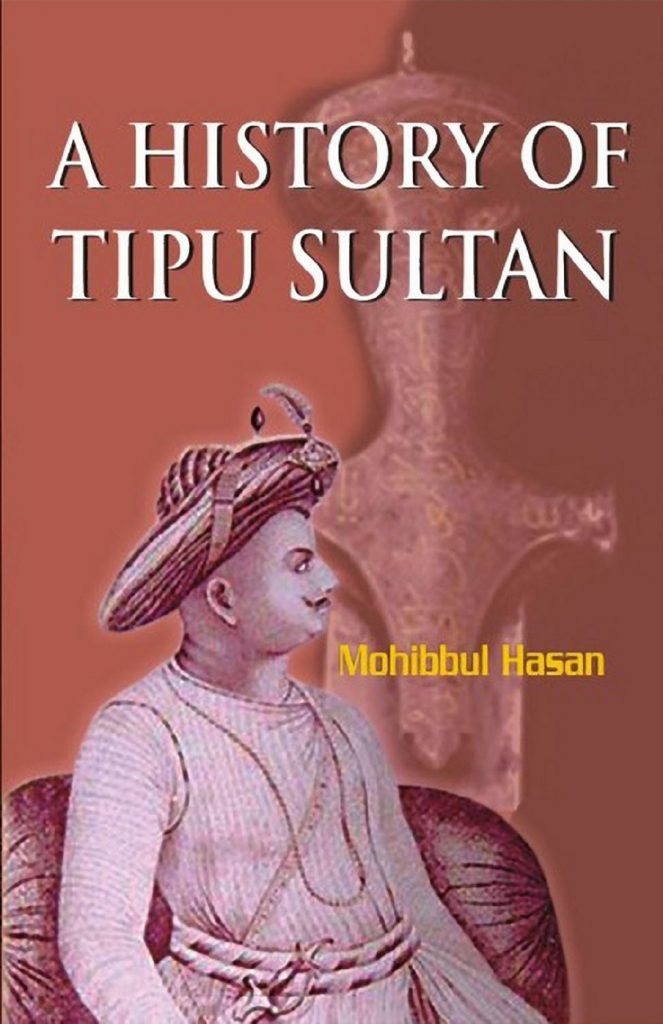British troops storm Tipu Sultan’s fort at Seringapatam. Photo Credit: Wikipedia.Painting by Henry Singleton
Bengaluru, November 8 (NIA): Even as the opposition Bharatiya Janata Party (BJP) and organizations of the people of Kodagu (Coorg) and Dhakshina Kannada (South Canara) have announced plans to agitate against it, the Congress government in the South Indian state of Karnataka has vowed to celebrate the birth anniversary of Tipu Sultan as planned on November 10.
The 18 th.Century ruler of Mysore, is seen by some Indians as an anti-British freedom fighter while others consider him a Muslim bigot who forcibly converted Hindus to Islam or persecuted some sections like the Coorgis and Mangalorian Catholics.
When Tipu Jayanti’s anniversary or Tipu Jayanti was celebrated last year, two people were killed in the agitation against it.
This year, opponents of the celebration had gone to the Karnataka High Court with a petition to ban it. While the court observed that Tipu Sultan was not a freedom fighter but only a ruler who fought the British to safeguard his own interest, it did not ban the celebrations. It asked the petition to put across his case to the State Chief Secretary for his consideration and pass an order by November 8. But with the state Chief Minister Siddharamiah being determined to go ahead with the celebrations, the Chief Secretary is unlikely to give an order favorable to the petitioner.

Siddharamiah told NDTV that only a few people are opposed to the celebrations and that too for “political reasons”.
Tipu Was Not A Muslim Fanatic Says Biographer
According to Tipu’s biographer Prof.Mohibbul Hasan, he was by no means an Islamic zealot. In his book The History of Tipu Sultan Hasan argues on the basis of records, that the “Tiger of Mysore” was essentially non-communal, and was basically development oriented. He says that Tipu ought to be appreciated for his “non-communal” rule and his success in turning his vast domain into the most prosperous princely state in 18 th.Century India.
To start with the dark side, W.Kirkpatrick, in his 1811 publication Select Letters of Tippoo Sultan, describes Tipu as an “intolerant bigot and a furious fanatic” who indulged in forcible conversions, mass circumcisions, destruction of temples and confiscation of temple lands. M.Wilks, writing in 1864, and H.H.Dodwell in his Cambridge History of India (1929) echo Kirkpatrick.
But Professor Hasan, who taught history in Calcutta, Aligarh and Jamia Milia universities, maintains, through rigorous research, that Tipu was not a religious bigot. If the British chroniclers reviled Tipu, it was because he refused to pay tribute to the British; tried to set the Nizam of Hyderabad and the Marathas against them; and sought an alliance with the French, Hasan argues. He points out that even the hostile British acknowledged that Tipu gave a good development-orientated administration to his people.
Hindus in High Places
Hasan points out that a number of top functionaries in Tipu’s government were Hindus. Purnaiya was the Mir Asaf (in charge of Revenue and Finance). Krishna Rao was his Treasurer. Shamaiya Iyengar was Minister of Police and Post. Subba Rao was his chief Peshkar. Srinivas Rao and Appaji Ram were his close confidantes. His agents in the Moghul court were Mool Chand and Sujan Rai. The Faujdar of Coorg was Nagappayya, a Brahmin. The Asafs (revenue officers) at Coimbatore and Palghat were Brahmins. The chief of Tipu’s irregular cavalry was Hari Singh. Rama Rao and Sivaji, a Maratha, commanded his regular cavalry. Tipu sent one of his Hindu Generals, Sripat Rao, to quell the Nair rebellion in Malabar.

Helped Sringeri Math
In 1916, the Mysore government’s Director of Archeology, K.Narasimhachar, discovered a bunch of letters in the Sringeri Math which showed that Tipu had greatly helped the math and highly respected its Abbot, the Sringeri Sankaracharya. In 1791, the math was raided and pillaged by a Maratha chieftain, Raghunath Rao Patwardan, and the Sankaracharya had asked Tipu for help to restore the math. Deeply grieved, Tipu wrote back saying: “ People who have sinned against such a holy place are sure to suffer the consequences of their misdeeds at no distant date” and asked his officials to send cash and grains so that the idol of Goddess Sarada could be consecrated. He also donated a palanquin for the Sankaracharya and requested him to pray for the prosperity of his domain.
END
.

























































